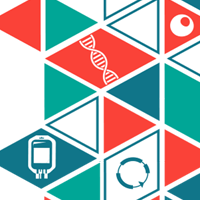Advanced cell therapies – progress towards the clinic
Cell Gene Therapy Insights 2016; 2(3), 323-324.
10.18609/cgti.2016.050
The emergence of cell-based therapies has been one of the most remarkable advances in translational science over the last decade. The current spotlight discusses some of the emerging technologies and challenges in advancing cell-based therapies to the clinic.
The emergence of cell-based therapies has been one of the most remarkable advances in translational science over the last decade. Because of their inherent complexity, cell therapies offer the potential to intervene at several points in the pathological process and thus provide a more effective treatment strategy. While preclinical studies are advancing rapidly, their effective clinical translation remains challenging with complexities surrounding safety & efficacy, manufacturing and pricing and reimbursement.
Working with our expert Guest Editors – Dr Jun Takahashi, (Center for iPS Cell Research and Application, Kyoto University, Japan) and Dr Mahendra Rao (Mahendra Rao LLC, USA), the current spotlight discusses some of the emerging technologies and challenges in advancing cell-based therapies to the clinic. We aim to engage key stakeholders from industry and academia in working towards translational solutions, and this has been our intent with the selection of leading expert contributors.
• The production of hematopoietic cells in vitro offers an excellent alternative to donor-derived platelet and red blood cell transfusions. Dr Marc Turner (Scottish National Blood Transfusion Service, UK) and colleagues, discusses various approaches used to generate differentiated erythroid cells in vitro to serve as a transfusion product and the key challenges for in vitro red cell manufacture for clinical application.
• The development of inducible transgene technology has enabled the creation of conditionally immortalized cells that can be expanded to clinical quantities in a stable and consistent fashion, thus ensuring that the cell formulation delivered to the patient is safe and carries negligible risk of cancer. Dr Ivan Wall and colleagues (UCL, London, UK) discuss some of the key technologies that have been used to create conditionally immortalized cells for clinical development.
• From first through to the fourth generation, CAR T-cell technology has developed rapidly. Barbara Nelsen and colleagues (Nelsen Biomedical, USA) provide an overview of the CAR-T therapeutics, from improvements in CAR-T technology to clinical results and financial investment; with some key insights into the critical challenges to successful commercialization of CAR T-cell therapy.
• The derivation of dopaminergic neurons from induced pluripotent stem cells brings new hope for a patient-specific, stem cell-based replacement therapy to treat Parkinson’s disease and related neurodegenerative diseases. Guest Editor, Jun Takahashi provides an overview of the clinical translation of stem cell technology in Parkinson’s disease.
• Leading on from this, we hear from leading pioneer, Dr Olle Lindvall, Lund University, Sweden, who shares his invaluable experience and insight about the advances and challenges in delivering on the promise of cell therapies for neurodegenerative diseases.
• Following the discovery of human embryonic stem cells, a great deal of research focused on the possibility of creating cardiomyocyte-based cell replacement strategies for disease such as myocardial infarction. Dr Christine Mummery, Leiden University, The Netherlands, shares her extensive experience in working with ES-, and more recently, iPSC-derived cardiac cells and discusses her vision for their application. Videos of both Dr Mummery and Dr Lindvall’s interviews can be viewed at www.insights.bio.
• GSK’s Strimvelis, an ex-vivo stem cell gene therapy, has stolen the limelight in becoming world’s first paediatric gene therapy. Dr Sven Kili (Head of Cell & Gene Therapy Development, GSK, UK) , talks about the development of Strimvelis. He also shares his opinion on the future opportunities that might arise from the development of Strimvelis as GSK look to move into additional diseases and indications.
We hope you enjoy the Cell & Gene Therapy Insights – Spotlight on Advance Cell Therapies– you can access all content free of charge on the CGTI website, in addition to a host of other useful content, videos and webinars in our Gene Editing Resource Center.
Chris Mason
Chief Science Officer, AvroBio Inc., 400 Technology Square, Cambridge, MA 02139, USA
&
Senior Editor, Cell & Gene Therapy Insights, Professor of Regenerative Medicine Bioprocessing, Advanced Centre for Biochemical Engineering, University College London, UK
Elisa Manzotti
CEO and Founder, BioInsights
e.manzotti@insights.bio
